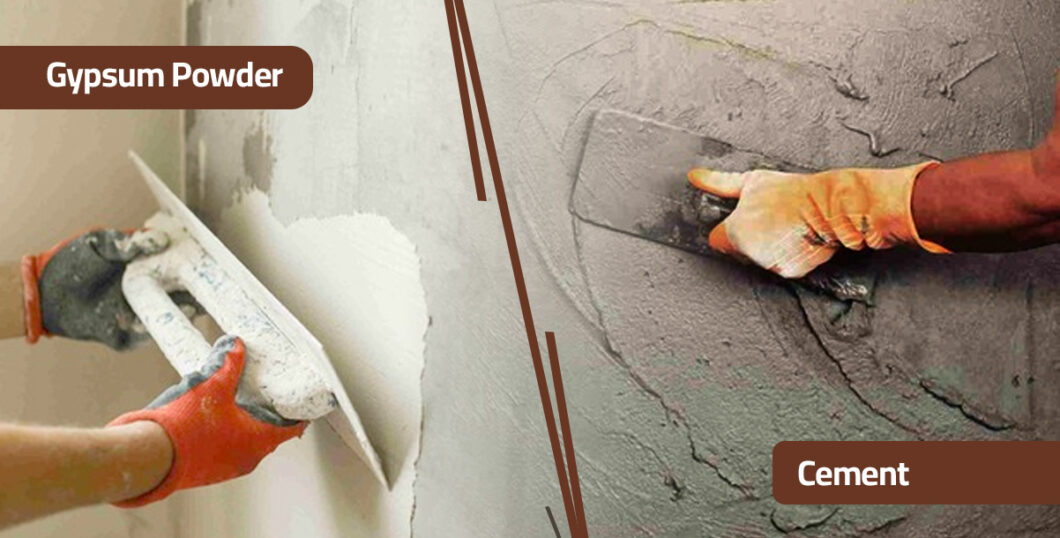
When you construct or renovate a building, your major problem is which plaster I use and which is better. Choosing the right material for plaster walls and ceilings is a very important factor for a smooth, long-lasting, and attractive finish. While everyone commonly chooses cement for plaster gypsum becomes a better choice for plastering.
You can choose Gypcore as the best Gypsum Powder Supplier in India for your next construction or renovation project. Also, this blog will look at the main differences between gypsum powder and cement plaster and explain why gypsum is the best choice for today’s plastering needs.
What is Gypsum Powder?
Gypsum powder is a white, smooth powder made by heating gypsum stone. It comes from the mineral gypsum and is commonly used in construction for plastering and molding. This powder contains calcium sulfate dihydrate and is known for setting quickly and providing a smooth finish.
What is Cement Plaster?
Cement plaster is a building material made by mixing cement, sand, and water. It creates a smooth, strong, and protective coating for walls and ceilings, both inside and outside buildings. Although it has been used for many years, it has some drawbacks compared to gypsum plaster.
Why Gypsum Powder is Better than Cement for Plastering.
Faster Drying Time
Gypsum plaster dries much faster than cement plaster. While cement plaster can take days to dry fully, gypsum plaster sets in just a few hours. This speed reduces construction time and helps projects finish quickly.
Crack Resistance
Cement plaster can easily crack over time because it shrinks. In contrast, gypsum plaster shrinks very little, which reduces the chance of cracks and provides a smooth finish that lasts longer.
Lightweight and Easy to Apply
Gypsum plaster is much lighter than cement plaster, making it easier to apply and handle. This reduces labor effort and enhances efficiency. Additionally, gypsum requires no sand, eliminating the hassle of mixing and reducing material costs.
Excellent Fire Resistance
Gypsum plaster has natural fire-resistant properties due to its high water content. When exposed to fire, the water molecules in gypsum are released as steam, slowing down the spread of flames. Cement plaster, in contrast, offers less fire resistance.
Superior Finish and Aesthetics
Gypsum plaster provides a smooth and seamless finish, eliminating the need for additional putty or finishing coats before painting. Cement plaster, however, requires additional finishing work to achieve a smooth texture.
Moisture Regulation and Breathability
Gypsum plaster helps regulate indoor humidity levels by absorbing and releasing moisture as needed. This property enhances indoor air quality and comfort. Cement plaster, in contrast, is more prone to trapping moisture, which can lead to dampness and mold growth.
Environmentally Friendly
Gypsum plaster is more eco-friendly than cement plaster. The production of cement releases a significant amount of carbon dioxide, contributing to environmental pollution. Gypsum, being a naturally occurring mineral, has a lower environmental impact.
In conclusion, when choosing between gypsum powder and cement plaster for your construction or renovation project, gypsum plaster proves to be the superior option. It offers a faster drying time, better crack resistance, lightweight application, excellent fire resistance, and a smooth, aesthetically pleasing finish. Additionally, gypsum plaster helps regulate moisture, making it a healthier choice for indoor spaces.
For the best quality gypsum powder, trust Gypcore, the leading Gypsum Manufacturer & Supplier in Oman. With high-quality products and a commitment to excellence, Gypcore ensures durable and efficient plastering solutions for all your construction needs.




